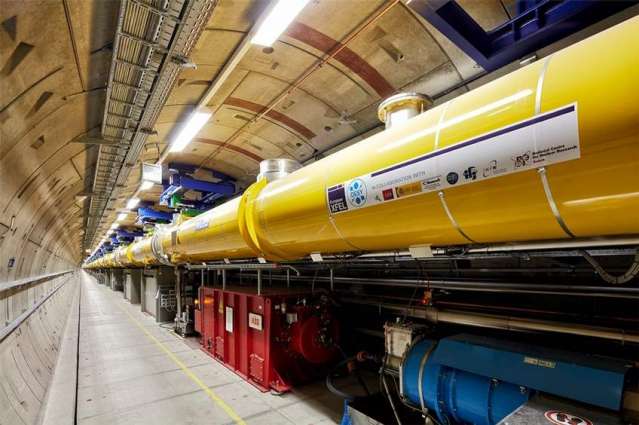The Russian government has formally authorized the United Kingdom to join a unique international scientific project to build the European x-ray laser (XFEL), according to a decree published on the country's legal information portal on Friday.
MOSCOW (Pakistan Point News / Sputnik - 17th August, 2018) The Russian government has formally authorized the United Kingdom to join a unique international scientific project to build the European x-ray laser (XFEL), according to a decree published on the country's legal information portal on Friday.
The United Kingdom's partnership in the XFEL project was announced in August 2017, and in March, the country became a participant, pending formal approval. The United Kingdom's contribution to the project will amount to 26.2 million Euros ($32.6 million) in 2005 prices.
The decree entrusts the Russian education and Science Ministry to sign a protocol to the convention on the United Kingdom joining the construction and operation of XFEL on behalf of the Russian government.
The construction of XFEL started in early 2009, while operations started last year. The project is worth 1.22 billion euros ($1.45 billion), according to the official XFEL website. A total of 12 countries are taking part in the project, including Russia, Denmark, France, Germany, Hungary, Italy, Poland, Slovakia, Spain, Sweden, Switzerland and the United Kingdom. Using X-rays, scientists will be able to, among other things, determine the molecular composition of cells and map out viruses at an atomic level.
About 300 institutions from 36 countries have contributed to the XFEL project. Russian participants include the Kurchatov Institute (Moscow, Protvino, St. Petersburg), Russian academy of Sciences' (RAS) Institute for Nuclear Research (Moscow), Institute of Crystallography (Moscow), Ioffe Physical-Technical Institute (St. Petersburg), Budker Institute of Nuclear Physics (BINP) of the Siberian Branch of the RAS (Novosibirsk), Rosatom enterprise Efremov Institute of Electrophysical Apparatus, Joint Institute for Nuclear Research (Dubna), MEPhI, MIPT, Moscow State University and others.




